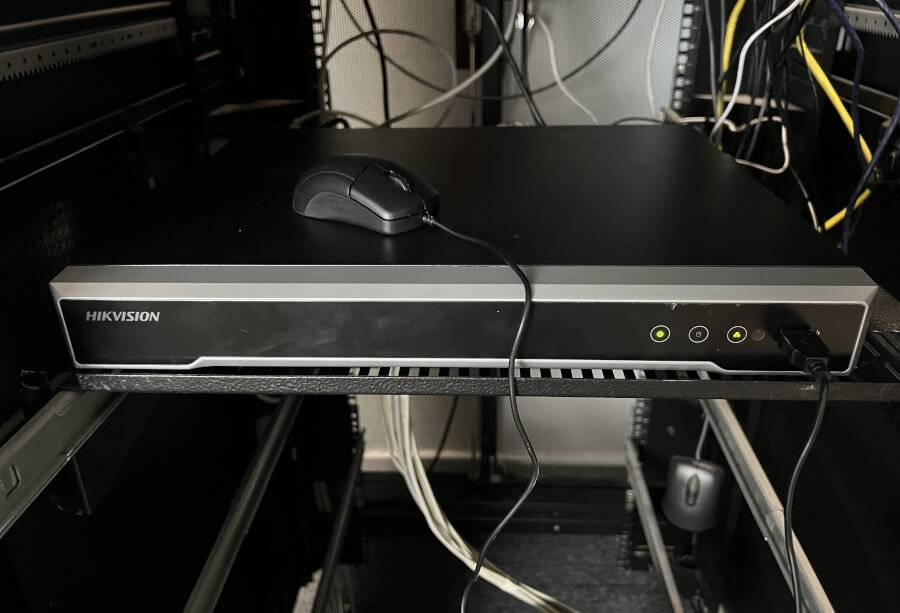
A Network Video Recorder, also known as an NVR, is essentially a hard drive that stores data for recording security systems. It stores the recorded footage and gives you the ability to view and organise your security data through a monitor.
When you’re considering installing a security system, you’ll be faced with two options when it comes to recorders: Digital Video Recorder (DVR) or Network Video Recorder (NVR) systems. Both systems will record your security footage, but they work in very different ways. As a result, you can expect the security footage will differ depending on your chosen recording system.
If you’re interested in installing a security system and are wondering which recording system is the best fit for you, read on to find out more about the differences between DVR and NVR systems.
NVR vs DVR Systems - What's the Difference?
What Is a Network Video Recorder?
A Network Video Recorder (NVR) System receives the security footage from the security camera via an ethernet cable, which also provides the security camera with its power. All of the data is recorded and processed on the camera itself, then sent through the ethernet cable (or via the shared network) to the NVR system, which stores and displays the data.
How Does a DVR System Work?
A Digital Video Recording System works with analogue cameras, which send the footage to the DVR. Unlike NVR systems with their IP cameras, analogue cameras don’t have the ability to process the footage they’re recording, so they send the raw data to the DVR, which then is tasked with processing the data as well as storing it.
DVR systems don’t use Ethernet cables to connect with their analogue cameras, they use coaxial cables with BNC connectors. These cables don't carry power like ethernet cables, to there are multiple cables leading to and from the security cameras, for supplying power and transferring data.
Want to know more about what kind of security systems are available for your home? Find out more about the different types of home security options available with IDS Security today.
Home Security Systems
What Are the Pros and Cons of Each Type?
Cables
A Network Video Recorder system uses ethernet cables, whereas DVR systems use Coaxial cables with a BNC connector. Ethernet cables are the more advantageous option, because they are smaller, more flexible allowing easier installation, and can supply power to the cameras. Coaxial cables with BNC connectors are less flexible and don’t supply power like Ethernet cables do, which means that there will be more cables running to and from security cameras with the DVR system. If you want a simpler, more compact solution - stick with an NVR system.
Analogue vs Digital Cameras
NVR systems are used in conjunction with digital cameras, whereas DVR Recording systems are used with analogue cameras.
Digital Cameras have higher resolution and are able to record audio. These digital cameras are also Internet Protocol (IP) cameras, which means that they have a chipset that allows them to process the video data within the camera, before sending the data over to the NVR system. As a result, the NVR isn’t responsible for processing any of the recorded footage; it simply stores the data and gives you the ability to view it on a monitor, connected to the NVR unit via either a VGA or HDMI cable.
Analogue cameras can only record audio through an audio cable, which adds another cable that needs to be used as part of the DVR system. Furthermore, there are only a limited number of audio ports within the DVR system so, if you’re using multiple cameras as part of your security system, there are only a limited number of cameras that will be able to have audio recorded and sent to the DVR. Again, a Network Video Recorder is the better option if you plan to record audio with your new CCTV system.
READ MORE: Can CCTV Cameras Record Sound?
Image & Audio Quality
As mentioned above, coaxial cables don’t have the ability to transmit audio, and DVRs have limited audio ports, so the recorded footage and audio would be higher quality from an NVR system. Analogue signals also transmit lower quality images in comparison to the NVR systems. If you want the best image and audio quality from your CCTV system, we'd recommend NVR over DVR.
Recorder Flexibility
Digital Recording Systems require that the analogue cameras be physically connected to the DVR device. There must be a coaxial cable with a BNC connector running from every analogue camera to the DVR.
On the other hand, since NVR systems are used with smart digital IP cameras that are capable of processing data independently and are connected to the NVR via ethernet, it’s not necessarily required for the cameras to be physically connected to the NVR device; they only need to be on the same network to transfer data to the NVR.
*
Both Digital Video Recorders and Network Video Recorders carry data from your security cameras and store it, but they produce different results. A Network Video Recorder is generally the more popular choice for people installing a security system for the first time, but if you’re revamping or installing a system in a building that has already had a security system in the past, there might already be fixtures and cables installed capable of supporting a DVR based security system.
DVRs are generally a more budget-friendly option, so if you don’t need the improved quality of security footage supplied by NVR security systems, DVR systems would be a suitable choice.
Are you interested in installing a security system in your home or business? Reach out to IDS Security today and get your free quote, or ask for a free security survey; the talented professionals at IDS security will analyse your home and help you decide what kind of security system would work best for your premises.
Request a Quote Request a Security Survey
Read More: Security Camera Maintenance